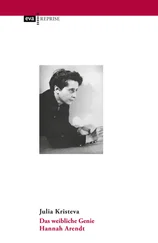
Why do I feel so sure that this Carmelite nun has slipped the leash of her time and her world, and stands beside us in the third millennium? Is Teresa the diarist a modern sensibility, revealing that the secrets of baroque civilization are female? Or is she a novelist who weaves romantic plots, the necessary love interest, around the mystical subject — man or woman, man and woman? Or perhaps the maverick thinker of the Self outside the Self? A Montaigne of extreme, borderline states? The first person to theorize the imaginary with the aid of its own specific tools?
Master of triumphant narcissism inasmuch as she was loving/loved, Teresa was not content to develop the Christ-centered revolution introduced into Judaism by a God-man of love, whose madness —lately called sadomasochistic passion — had touched Mary Magdalene, Saint Paul, Saint Augustine, and been passed on. Mel Gibson’s 2004 film The Passion of the Christ is simply the cinematographic mise-en-scène of these rejoicings, these shades of pleasure and pain that glimmer throughout the Bible and, for anyone still unenlightened, through Christ’s Calvary. But the ecstatic Madre was no less possessed of a rational mind, capable of paring down her extravagant but therapeutic “visions” and coupling the convulsions of the body with the shifting infinity of thought. Ten years after The Book of Her Life (whose definitive version was completed in 1565), The Dwelling Places of the Soul (1577) feels its way toward a “spiritual marriage” that is not so much a hallucinatory “vision” as a carnal thought, a pure joy of the mind inseparable from the body. It allows her to assess with considerable philosophical precision the difference between thought in motion, a turmoil of the imaginary , and the intellect loosed from the body:
The important thing is not to think much but to love much…I have been very afflicted at times in the midst of this turmoil of mind. A little more than four years ago I came to understand through experience that the mind [ pensamiento ] (or imagination, to put it more clearly) is not the intellect . I asked a learned man and he told me that this was so; which brought me no small consolation. For since the intellect is one of the soul’s faculties, it was an arduous thing for me that it should be so restless at times. Ordinarily the mind flies about quickly, for only God can hold it fast in such a way as to make it seem that we are somehow loosed from this body . I have seen, I think, that the faculties of my soul were occupied and recollected in God while my mind on the other hand was distracted. This distraction puzzled me.…It seems I myself wanted to take vengeance on myself.…And since our reading and the counsels we receive (that is, to pay no attention to these thoughts) don’t suffice, I don’t think that the time spent in explaining these things for those of you with little knowledge and consoling you in this matter is time lost.…Yet, it is necessary and His Majesty wishes us to take the means and understand ourselves; and let’s not blame the soul for what a weak imagination, human nature, and the devil cause. 21
On the one hand, moral judgment, on the other, the imagination of the Bride, desirous without fear of being judged for it: “I would kiss thee, yea, I should not be despised” (Song of Songs 8:1). Teresa recognizes the legitimacy and advantage of the former, but nothing could induce her to give up the harrowing desires without which there is no path to the Beloved: “It isn’t good for us to be disturbed by our thoughts, nor should we be concerned”; “the pain is felt when suspension does not accompany the prayer. When suspension does accompany prayer , no pain is felt until the suspension passes.” 22
The point is neither to submit to the intellect, nor to substitute it with restless thought and imagination, but to construct a new expression that constitutes the Teresian discourse: suspension of the intellect, while also eluding that illusory, misleading, mystificatory imagination. A different imagination — let’s call it the imaginary —is ready to “fly about,” to soar free of Teresa, to free her in turn, to deliver her even from God; since God is in “the very deep and intimate part” of her, and it’s this that she seeks to liberate and be liberated from.
My sandal-wearer, who claimed to be so unschooled as not to “know who the Assyrians are,” 23didn’t feel at all inferior to the learned doctors who guided her soul; she even took them down a peg in a burlesque homage of a type called vejamen , a comic-satirical critique penned in response to a solemn symposium (that’s right!) held in 1577. 24The perplexing title of her riposte, “Seek Yourself in Me”—words the Other once addressed to her as she prayed — would have left Socrates, 25Montaigne, and Descartes confounded. For Teresa’s formula has nothing to do with the Socratic “Know yourself,” that injunction to “Be wise!” that could have been engraved on the Delphic pediment like a greeting from Apollo to his devotees, which Plato examines in the Phaedrus and the Critias . 26Nor must it be confused with the motto of her contemporary, Montaigne: “What do I know?” Because, although he did not lose his Christian faith, even while suspecting it of bounding “the power of God…by the rules of human language,” the sage of Bordeaux was happier rehabilitating the Pyrrhonian skeptics and replacing every affirmative proposition by doubts. 27He chose the symbol of a pair of scales to represent this doubting Self, poles apart from Teresa’s ravished transports. Lastly, having arisen in dialogue and being derived from transference to the Other, Teresa’s phrase is equally unrelated to the “I think, therefore I am” reached by Descartes in his Discourse on the Method , because the latter is based on solipsistic certainty. 28
Not rationalistic, not skeptical, not isolated, not even “balanced,” and yet drawing on knowldge as much as on unknowing, Teresa’s Self is a twofold knowing from the start, born in the Other’s love and for the Other* [*“Le Moi de Thérèse est d’emblée co-naissant dans l’amour de l’Autre et pour l’Autre.” The author makes a pun on connaissant , knowing, and co-naissant , co-being born. — Trans.], ceaselessly inscribing itself in the spiral of call and response from I to you , between you and me . After the dialogical Socrates, before the doubting Montaigne and the cogitating Descartes, this woman had the idea — a biblical idea? baroque? psychoanalytical? — to invent a self-knowledge that can only be realized on condition of an inherent duplication: “you in me” and “me in you.” Her castle is interior inasmuch as it is infiltrated by the exterior Other, irreducible and yet included, body and soul; sensible and signifiable. This double knowing is a long way, too, from Rimbaud’s “illumination” (“I is another”) 29and more an intuition of something close to Freudian transference: a clarified passion for seeking a self that is grounded in the bond with another, inevitably poignant and definitively jubilant. Does Teresa posit this “third kind of knowledge” in muffled resonance with Spinoza the Marrano? 30Maybe, but from there to celebrating her as a scholar in theology was quite a step — one finally taken in 1970, in the aftermath of Vatican Council II, almost five centuries after she was born. Teresa of Avila and Catherine of Siena were proclaimed by Pope Paul VI the first women “Doctors of the Universal Church.”
Читать дальше













